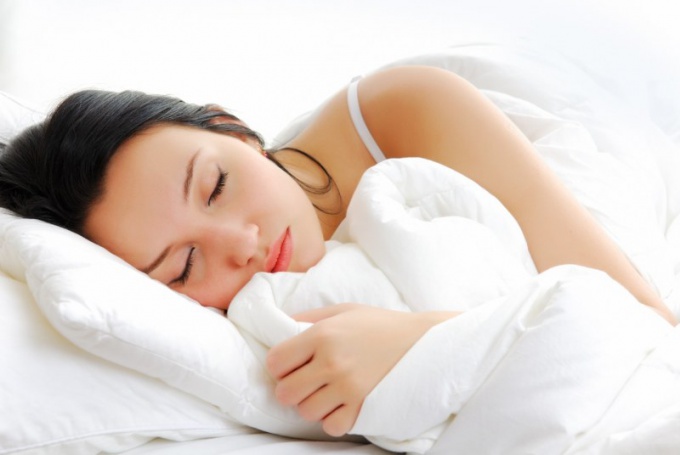And chewing in his sleep, and grinding the teeth is bruxism. This term is derived from the Greek word brychein. Literally, it actually means grinding the teeth, i.e. paroxysmal contraction of the masticatory muscles, accompanied by compression of upper and lower jaws, and gnashing of teeth, chewing movements and an unpleasant squeak. Interestingly, this disease can occur among children and among adults.
Chewing and squeaking in his sleep, of course, differ markedly from similar actions in reality. The fact that bruxism is characterized by low-frequency sounds, similar to clicks or grinding teeth. In this state, the sleeping person can be from several seconds to several minutes. When people chew in my sleep, then in their body to occur and appropriate changes. For example, changing the pulse, blood pressure, respiration, etc.
It should be noted that bruxism is a fairly common phenomenon. Interestingly, people with this disorder may chew and grind their teeth several times in one night. So far, the official science can not explain the causes of this strange phenomenon in humans. The fact that scientists do not detect the "fans" chew in my sleep any personal changes.
However, today doctors believe chewing in a dream with other forms of violation of the regulation of sleep depth. To them, of course, include snoring, nightmares, somnambulism (sleepwalking) and nocturnal enuresis (urinary incontinence).
Interestingly, even in the XXI century, its popularity does not lose and the people's view of the origin of bruxism. Today, as always, among people widely believed that the chewing and grinding of teeth during sleep is evidence of the emergence of the body of the sleeping worms. However, until now scientists have not found this significant confirmation! In addition, worms have "lovers" night chewing do not occur more often than other people, not creaking the teeth during sleep.
Scientists increasingly agree that bruxism is common among those who are regularly experiencing some stressful influence. The fact that internal anxiety, anger, excitement before going to sleep, the tensions do not go unnoticed, both for adults and for children.
In addition, the researchers corrected for short-term chewing or grinding of teeth during sleep, lasting 10 seconds. They believe that the manifestation of the characteristic of perfectly healthy people who are on a positive note, experiencing positive emotions.
As people chewing in my sleep?
Chewing and squeaking in his sleep, of course, differ markedly from similar actions in reality. The fact that bruxism is characterized by low-frequency sounds, similar to clicks or grinding teeth. In this state, the sleeping person can be from several seconds to several minutes. When people chew in my sleep, then in their body to occur and appropriate changes. For example, changing the pulse, blood pressure, respiration, etc.
Why do people chew in my sleep?
It should be noted that bruxism is a fairly common phenomenon. Interestingly, people with this disorder may chew and grind their teeth several times in one night. So far, the official science can not explain the causes of this strange phenomenon in humans. The fact that scientists do not detect the "fans" chew in my sleep any personal changes.
Usually during sleep noted several episodes of bruxism. They last no more than 15 seconds. If their duration is longer, it can cause damage to teeth and surrounding soft tissues.
However, today doctors believe chewing in a dream with other forms of violation of the regulation of sleep depth. To them, of course, include snoring, nightmares, somnambulism (sleepwalking) and nocturnal enuresis (urinary incontinence).
Interestingly, even in the XXI century, its popularity does not lose and the people's view of the origin of bruxism. Today, as always, among people widely believed that the chewing and grinding of teeth during sleep is evidence of the emergence of the body of the sleeping worms. However, until now scientists have not found this significant confirmation! In addition, worms have "lovers" night chewing do not occur more often than other people, not creaking the teeth during sleep.
What scientists say?
Scientists increasingly agree that bruxism is common among those who are regularly experiencing some stressful influence. The fact that internal anxiety, anger, excitement before going to sleep, the tensions do not go unnoticed, both for adults and for children.
Treatment of bruxism is still not have any common principles. It all depends on the time of development of the phenomenon, and the nature and causes of its manifestation.
In addition, the researchers corrected for short-term chewing or grinding of teeth during sleep, lasting 10 seconds. They believe that the manifestation of the characteristic of perfectly healthy people who are on a positive note, experiencing positive emotions.
